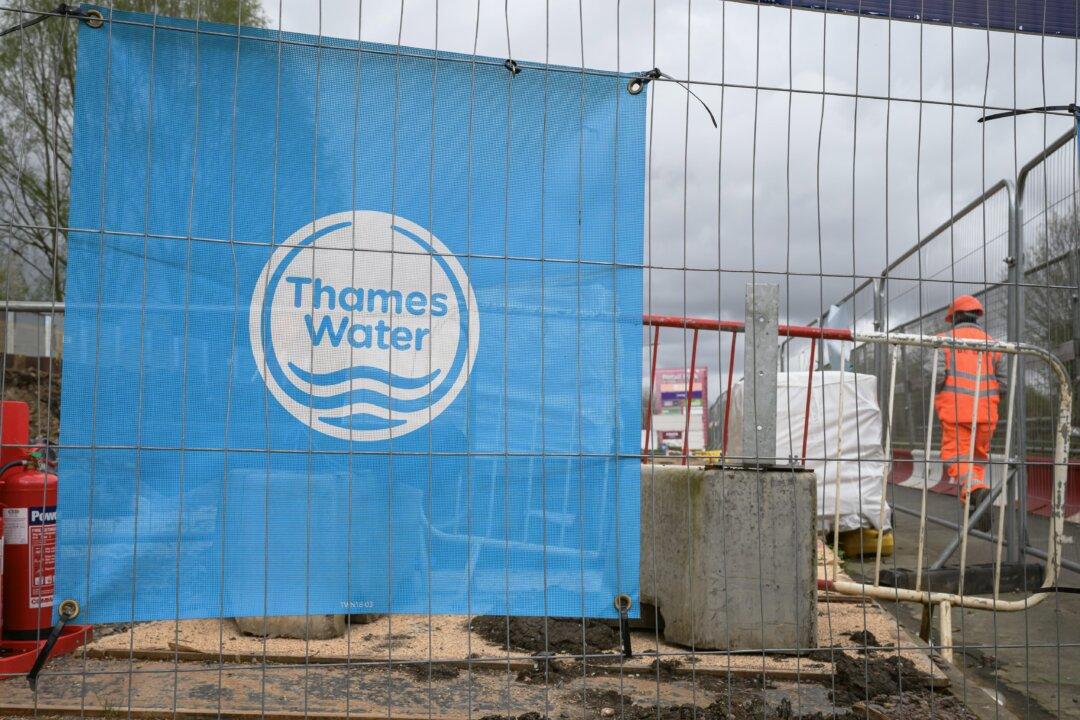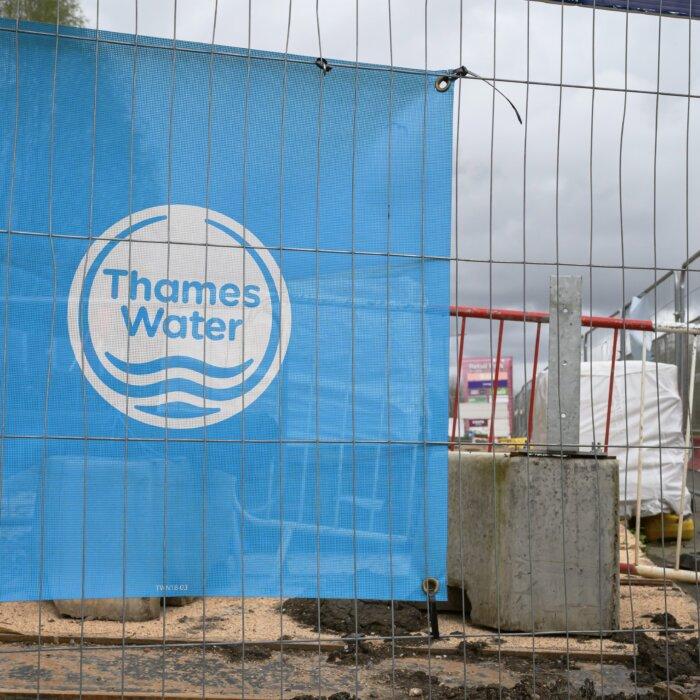Britain’s biggest water company, Thames Water, has warned 37,545 basement properties in London are at risk of “rapid flooding” because they are located near ageing water trunk mains.
In the asset health deficit document, which has been posted online, the firm says its ageing infrastructure poses, “a risk to public safety, water supply and the environment.”
Thames Water says much of its £19 billion of assets—including water pipes, sewers, and sewage works—are in a “poor” or “failed” condition and are “no longer capable of reliably performing their function.”
Bursts of sewage mains have increased by 70 percent over the past seven years, according to the document, because they have “reached the end of [their] estimated serviceable life.”
‘Significant Asset Health Challenges’
In the document, Thames Water says: “Asset health is critical to deliver our long-term Vision for 2050 but we have identified significant asset health challenges that pose a risk to public safety, water supply and to the environment.”The company said it agreed with Ofwat Chief Executive David Black, who said in July last year Thames Water had “deep-rooted problems.”
It said there were a range of issues from crumbling sewage pipes to obsolete water quality monitoring technology and a lack of reservoirs.
Thames Water said it would take 500 years to replace all its sewers at the current rate and 167 years to replace its water pipes.
Feargal Sharkey, the former punk singer turned water quality campaigner, responded to the report on social media platform X, writing, “Greed, profiteering and Ofwat’s demands that water companies ’sweat the assets’ to blame.”
In the report Thames Water said: “We want to break the cycle of sweating assets and to do this we need to start urgently delivering a programme of targeted capital maintenance interventions that have been identified bottom-up to mitigate the most serious risks.”
“This will cost an additional £1,905m,” it added.
Thames Water has proposed increasing household bills in London and the southeast by 59 percent.
Ofwat is due to make a draft decision on the company business plan on July 11.

The company also says four large water processing plants in London need upgrading to prevent the risks from cryptosporidium oocysts, a parasite in drinking water that can cause diarrhoea.
The Drinking Water Inspectorate has raised concerns about 43 cryptosporidium incidents since 2018.
The Environment Agency says sewage spills into England’s rivers and seas more than doubled in 2023, with 3.6 million hours of spills last year, compared with 1.75 million hours in 2022.
In its manifesto, Labour said it would “put failing water companies under special measures to clean up our water.”
Water Industry Facing ‘Financial Black Hole’
Earlier this month Sean Comber, a professor of environmental chemistry at the University of Plymouth who has worked in the water industry for 35 years, told The Epoch Times sewage spills had gone up in 2023 because there had been so much rain that year, which created greater overflows.He said there was a “financial black hole” in the water industry which explained why none of the big three political parties wanted to renationalise the water industry.
The Green Party, in its manifesto, has said it would “end the scandal of sewage pouring into our rivers and seas by taking the water companies back into public ownership.”
Thames Water proposes increasing average household bills from around £471 a year now to £749 in 2029–2030.
The company says it has enough cash to last until May 2025.







